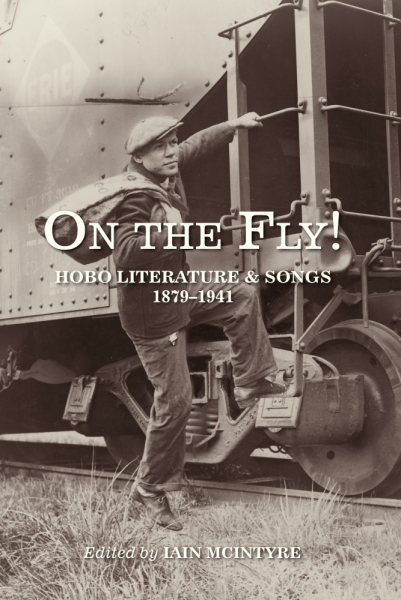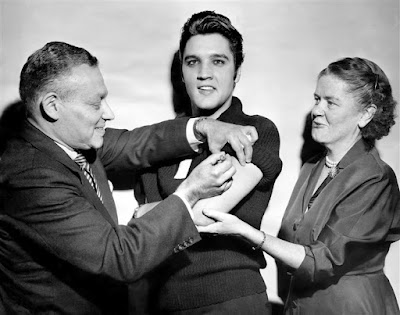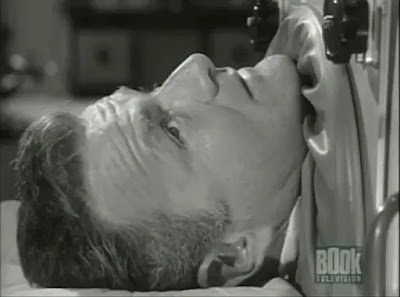 |
| What the Bad Guys Wear this Season © South African Paramount Marauder |
An Unexpected Heroine
Seldom do we encounter a housekeeper who singlehandedly defeats a criminal terrorist cell. On television, such a heroine would have a CIA backstory, keep a 10mm in her spatula drawer, and be trained in seventeen different ways to kill a bad guy with a broken pair of nail scissors. But no, Nellie appears so extra ordinary, she becomes extraordinary. Our calm and self-possessed iqhawekazi unpacks her most formidable weapon, her wits.
Alfred Hitchcock’s Mystery Magazine arrived mere minutes ago, seven hours before today’s publication deadline. It contains stories by my betters, Eve, Janice, Mark, and O’Neil, and a rare chance to see one of my stories in print. I’ll discuss the genesis of the story another time, but let’s discuss language… or in this case, languages.
South Africa has thirty-five languages, eleven of them official. My story, ‘The Precatory Pea’, is sprinkled with expressions from several. The Netflix television show Blood & Water illustrates how South Africans speak, sometimes coloring sentences with two, three, or four languages.
We do the same thing without realizing. We North Americans mix in Spanish, French, and Latin, plus numerous American Indian place names. We’re the richer for it.
The Name of The Name
“The name of the song is called ‘Haddocks’ Eyes.’”
“Oh, that’s the name of the song, is it?” Alice said, trying to feel interested.
“No, you don’t understand,” the Knight said, looking a little vexed. “That’s what the name is called. The name really is ‘The Aged Aged Man.’”
“Then I ought to have said ‘That’s what the song is called?’” Alice corrected herself.
“No, you oughtn’t: that’s quite another thing! The song is called ‘Ways and Means’, but that’s only what it’s called, you know!”
“Well, what is the song, then?” said Alice, who was by this time completely bewildered.
“I was coming to that,” the Knight said. “The song really is ‘A-sitting On A Gate’, and the tune’s my own invention.”
The table below contains unusual mixed-case words like siSwati, isiXhosa, and isiZulu. As Lewis Carroll’s Alice might note, Zulu is a Nguni language but isiZulu is the name of the language… or something like that. The particulars fomented a searing war within Wikipedia. British Wikipedian’s were outraged, claiming the names were at best stolen loan-words or worse, made-up slang. South African editors responding by quoting the Oxford Dictionary, South African Edition, which Wikipedian’s initially didn’t believe existed. So, if you aspire to be ultra-obsessively, compulsively correct (and Good Lord who doesn’t?), Zulu is the people, isiZulu is the language.
Complicating the issue is what computer people call ‘camel case’, mixed capitals and lower case, but this is not unusual in South Africa spelling. For example, the name of the province where I lived is KwaZulu-Natal… birthplace of the Zulus.
I’m admiring and grateful Alfred Hitchcock’s chief editor Linda Landrigan took in stride these issues of languages on the other side of the planet. How terrific is that!
The Fame of The Name
“Must a name mean something?” asked Alice in Wonderland.
Well, yes. Meanings of names used to be important in Western civilization. They often denoted something about the child or birth (Tuesday, Ginger), or religion (Mary, Josh), an occupational name (Carter, Fisher), a place name (D’Arcy, DuPont), or pretty much anything at all (Pearl, Rose). Society has let these lapse from shared memory, but meanings of names remain important in other cultures. An African family naming their little girl Treasure or Precious softens the hardest heart.
I’m not the only one, but I have a habit of relating names to the character of people in my stories. Sometimes I use sounds; sometimes I go by popularity. In the telling of ‘The Precatory Pea’, I took into account ethnicity and name meanings of characters, e.g, Sipho– gift.
Pronunciation
To my ear, South African English combines the sounds of British English with American Deep South vowels. “I like to ride my bike,” sounds like, “Ah lahk to rahd mah bahk.”
I enjoy the sound of several isiZulu terms. It happens to be a click language, so once in a while a *click* pops out. Many words use onomatopoeia. Anyone who’s been around aged farm machinery knows the sound of a tractor, ganda-ganda. A rattletrap vehicle is a skedonk. A bad guy is a skabenga– you can hear the word spit out in disgust.
I suspect Dutch Afrikaans has influenced some pronunciation. For example, ‘th’ sounds are pronounced with a hard T. The talented actress Charlize Theron is exceptionally tolerant of Americans mispronouncing her name, but in her home country, it’s spoken as Teron.
Johannisburg, Johannisberg, Johannesburg… I never know which spelling to use, never mind tasting the riesling. I learned it pronounced with a ‘Y’ as in “Yohannisburg.” So what happens? My hostess corrects me… “Johannesburg.” And then her Afrikaner friend corrects me back, “Yohannesburg.” I get verbal whiplash… or toungelash. At least all agree on Jo-burg pronounced as Joe-burg).
Salade Lyonnaise (salad of Lyon, France)
Salade lyonnaise is delicious, perhaps not often made with African spinach. Its distinguishing feature is warm vinegar and oil dressing with bacon scraps, heated but not so hot to wilt romaine, endive, or whatever lettuce you have at hand. Finish with chopped egg on the greens and dribble savory dressing over it. Try it!
Glossary
Many words have both formal and informal variants. Informal forms and plurals are in parentheses.
| term |
definition, description |
|
language |
| Arch Desmond |
Archbishop Desmond Tutu |
|
Setswana |
| bakkie |
pickup truck |
|
Afrikaans |
| bandile |
increased |
isiNdébélé, isiXhosa |
| bok, buck |
any horned, antelope-like ruminant |
Afrikaans, English |
| buhle |
handsome |
isiNdébélé, isiXhosa |
| deurmekaar |
confused |
|
Afrikaans |
| dof |
daft, dumb, stupid |
|
Afrikaans |
| dwaal |
dazed |
|
Afrikaans |
| en |
and |
|
Afrikaans |
| hawu |
expression: wow, whoa, pfft |
isiXhosa, isiZulu |
| impi |
war, warriors |
|
isiZulu |
| induna |
foreman, overseer |
|
isiZulu |
| injakazi |
slut, bitch |
|
isiXhosa |
| inyanga |
(plural izinyanga) healer |
|
isiZulu |
| isangoma |
medicine man, witch doctor, diviner, spirit talker, seer |
isiZulu |
| isigebengu |
(skabenga, plural izigebengu) bad guy, criminal,
villain |
isiZulu |
| isipho |
(sipho) gift |
isiNdébélé, isiXhosa |
| isiXhosa |
language of the Xhosa |
isiXhosa, English |
| isiZulu |
language of the Zulus |
isiZulu, English |
| kokayi |
summoner, caller of the people together |
Shona |
| mach schnell |
hurry (verb), quickly, now |
|
German |
| Madiba |
Nelson Mandela (clan name) |
|
isiXhosa |
| magondo |
hyena |
|
Shona |
| mampara |
idiot, cretin |
|
Afrikaans |
| marogo |
African spinach |
isiZulu, isiXhosa |
| moegoe |
cretin, stupid person |
|
Afrikaans |
| nelisiwe |
satisfied |
|
isiZulu |
| nkosana |
prince |
|
isiXhosa |
| rooibos |
South African red tea |
|
Afrikaans |
| salade lyonnaise |
salad of Lyon: egg, heated vinegar, oil, bacon |
French |
| schalk |
varlet, knave, servant |
|
German |
| Selous Scouts |
controversial Rhodesian multi-race guerrilla special
forces |
English |
| skedonk |
jalopy, beater, dilapidated car, junker |
isiZulu |
| svitsi |
hyena |
|
Shona |
| uDokotela |
physician, doctor |
|
isiZulu |
| umlungu |
(mlungu) white person |
|
isiZulu |
| umndeni |
(mndeni) family |
|
isiZulu |
| umthakathi |
(tagati) sorcerer, witch |
|
isiZulu |
| umuthi |
(muti) medicine; any liquid of useful purpose |
isiZulu |
| voortrekker |
pioneer |
|
Afrikaans |
| xiang si dou |
aphrodisiac love beads |
|
Chinese |
|
|
|
|
| |
(parentheses imply informal variants or plurals) |
|
Appreciation
I owe thanks to Simon for describing Selous Scouts and approving the finished story. I extend appreciation to ABA for helping me get the wrongs right and the rights better. Thanks to RT Lawton for reading and advising. And I thank the real Nelisiwe, a gentle soul, an open heart, and a lovely person. She’ll be shocked to learn she’s known a world away. Nellie, I miss our shared lunches.































